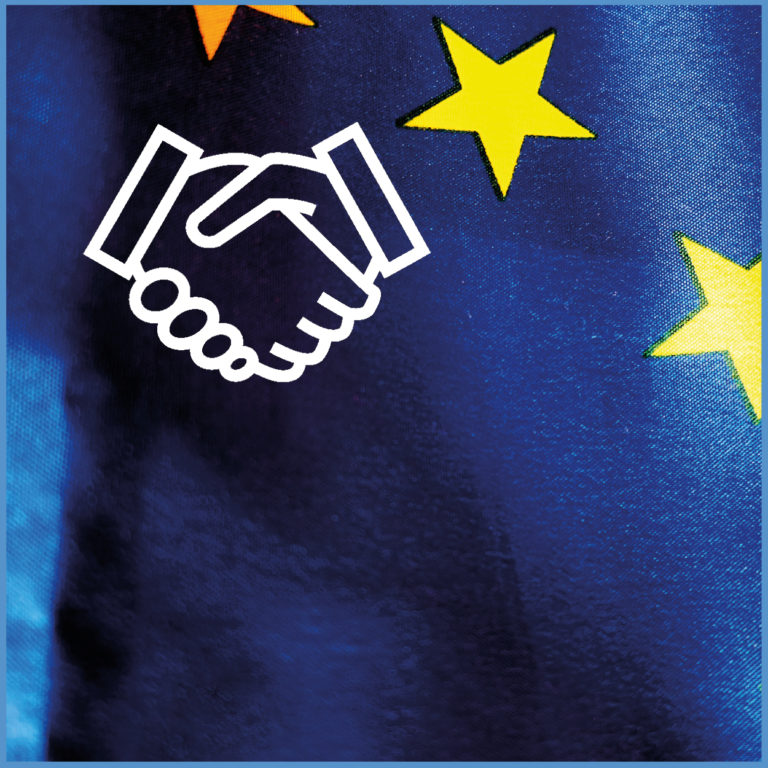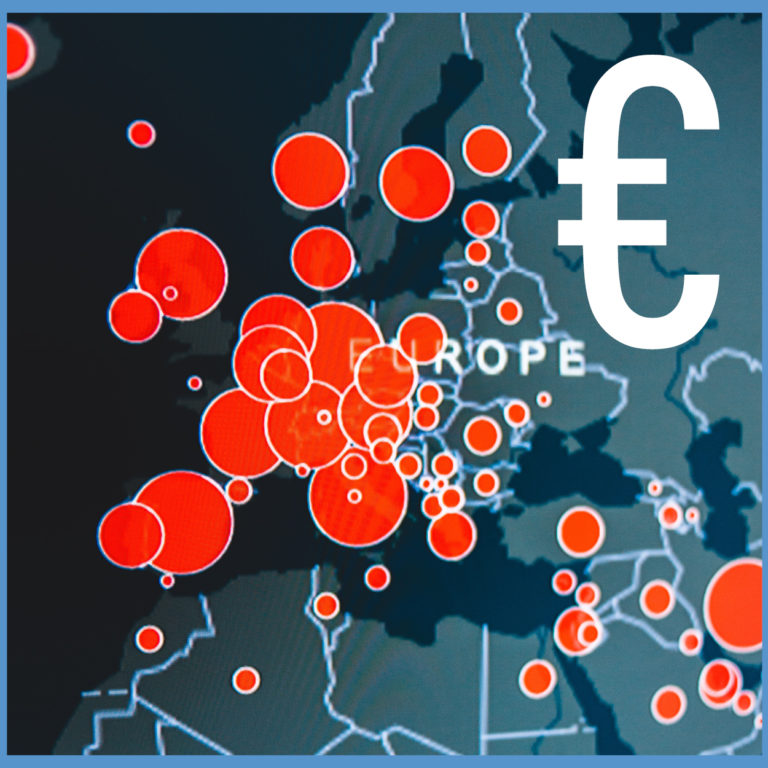Blog post
Budget européen, retrouver le sens du long terme
Depuis que l’Europe a éliminé les barrières à la circulation des capitaux (1990) et que l’euro est né sans budget propre (1999), l’Union monétaire est écartelée entre pays excédentaires et pays déficitaires. Cette polarisation affaiblit l’investissement public et réduit la croissance de long terme.
Tandis que l’Union devrait transformer son régime de croissance face aux défis social et écologique, l’Europe n’a pas de stratégie commune d’investissements longs. Sans mobiliser le budget européen pour créer une valeur ajoutée de l’Union, un nouveau contrat social et la conscience d’une citoyenneté commune resteront hors d’atteinte.
Une valeur ajoutée pour l’Union
L’action de l’Union se justifie par la création d’une valeur s’ajoutant à celle que chaque pays membre produit séparément. Dans l’urgence climatique, cette valeur doit être celle des biens communs indispensables à une croissance inclusive et durable.
La Communauté a commencé par le charbon. Au contraire, l’Union européenne est incapable de décider la sortie des énergies fossiles. Bien qu’à l’initiative de l’Accord de Paris sur le climat, les Européens sont incapables de définir ensemble la stratégie d’investissement requise.
Dans leur logique de « juste » retour, les pays membres défendent leur « solde net » sans se soucier de la valeur ajoutée des actions financées. C’est un jeu à somme nulle : les recettes proviennent à plus de 80 % des contributions nationales et 70 % des dépenses sont pré-allouées aux pays membres. En outre, le cadre pluriannuel fixe des plafonds de dépenses pour sept ans : cette rigidité interdit à l’Union d’avoir une politique économique propre ou d’en changer face à l’imprévu.
Pour mettre le budget au service de l’investissement long il faut, en recettes, augmenter la part des ressources levées directement sur les agents économiques et, en contrepartie, réduire à 50 % le poids de la ressource RNB, un « impôt » forfaitaire sur le revenu national brut, et il faut en dépenses réduire la part des enveloppes pré-allouées aux pays membres dans le cadre pluriannuel.
Mettre l’investissement privé au service de l’intérêt commun
À ce jour, le plan Juncker est la seule initiative visant à réveiller l’investissement productif, endormi par les contraintes du Traité sur la stabilité, la coordination et la gouvernance et par la frilosité de l’épargne privée. Il a innové en établissant une collaboration inédite entre la Banque européenne d’investissement et la Commission : le budget de l’Union est utilisé à titre de garantie des premières pertes sur un gros volume d’investissements privés.
Pour pérenniser ce dispositif, il faudrait mieux intégrer les banques publiques d’investissement au Fonds InvestEU qui prendra le relais du Plan Juncker en 2020. Ces banques ont une grande expertise du terrain et sont donc bien placées pour identifier les opportunités locales d’investissement, combiner les capacités nationales et européennes de financement, éviter les redondances et attirer les prêteurs privés. Avec leur concours, InvestEU aurait, par rapport à une logique exclusive de marché, plus de chances de produire de la valeur ajoutée européenne.
Il faudrait aussi concentrer l’action d’InvestEU sur les investissements bas carbone à valeur ajoutée européenne et introduire une clause de conditionnalité climatique, pour éviter que les banques publiques financent malencontreusement des projets à forte intensité carbone.
Une fenêtre d’opportunité
Les élections européennes sont une occasion unique d’ouvrir un débat transnational sur le rôle du budget au service des priorités sociales et écologiques et sur un rôle accru du Parlement européen dans les choix budgétaires annuels et pluriannuels. Sinon, le cadre financier 2021-2027 en cours de négociation figera le développement de l’Union pour dix ans. Après, il sera trop tard. Et les gouvernements porteront la lourde responsabilité d’avoir ignoré l’urgence climatique.
Michel Aglietta, Bernard Barthalay, Nicolas Leron et Eulalia Rubio
SUR LE MÊME THÈME
ON THE SAME THEME
PUBLICATIONS
Adapting the EU budget to make it fit for the purpose of future enlargements

EU enlargement and the post-2027 Multi-Annual Financial Framework

How stringent would the new Stability and Growth Pact be? And for who?

The tools for protecting the EU budget from breaches of the rule of law

Macro-economic impact of the EU Recovery Funds

THE NEXT REVISION OF THE FINANCIAL REGULATION AND THE EU BUDGET GALAXY

From words to action

The budgetary stick to the rescue of the rule of law?

A historic agreement, to be improved and implemented

An ambitious recovery budget, tough negotiations ahead

The EU budget and COVID: We need a “plan B”

Covid-19 and the Mobilisation of Public Development Banks in the EU

Tackling the coronavirus crisis:
how can the EU budget help?

Fiscal policy-making in the time of Coronavirus

Coronavirus krach financier et krach politique

Corona: A European Safety Net for the Fiscal Response

The Member State compartment of the InvestEU Fund:
how does it work? Will it fly?

MFF negotiations: towards the end?

Leçon de démocratie à Bruxelles

‘No deal’ Brexit and the EU budget:
beware the risk for EU unity

An EU budget in support of the next commission’s agenda

European Budget 2021-2027: how to escape from “business as usual”?

The Seven qualities of a European Commission

European elections: promoting a coalition agreement between four political families

European Elections: Quest For Unity In The Diversity Of Winners

European Leadership

Brexit: the Knowns Amongst the Unknowns. For the UK, the EU and Third Countries, notably South Korea

Les mots de la campagne : Europe(s) ?

The European Parliament, Another Parliament

Les mots de la campagne : Protection

The “Article 7” proceedings against Poland and Hungary: what concrete effects ?

The battle for Europe’s future: political cleavages and the balance of power ahead of the European Parliament elections

Les mots de la campagne : la Souveraineté

Un Parlement ne peut pas en cacher un autre

Les mots de la campagne: le progressisme

The proposals of the main European political families on the major themes of the European election campaign

Appartenance assumée, adhésion réservée : évolution des opinions publiques sur l’Union européenne – de la crise à nos jours

Le troisième acte de l’histoire européenne

The campaign for the European elections: themes and divides

Les mots de la campagne : le nationalisme

The words of the electoral campaign: populism

2019, année pour « Nous, Européens »

Negotiating the next Multi-Annual Financial Framework in an electoral year: which consequences?

Spitzenkandidaten: infography

What impact would a No Deal Brexit have on European Parliament elections?

European Parliament 2019: the Parliament and Europe to Come

Expectations and feelings, the state of public opinion before the European elections

InvestEU Fund: A Rebranded Juncker Fund?

Making better use of public funding: The role of national promotional banks and institutions in the next EU budget

Reinforcing the EU Budget with a fossil-fuel contribution

The Next Multiannual Financial Framework (MFF) and its Flexibility

EU budget: What’s the Cost of Europe?

Understanding the “Brexit Divorce Bill”

The possible impact of Brexit on the EU budget and CAP funding

The EU as a 3-D Power: Should Europe Spend More on Diplomacy, Development and Defence?

Social Investment and Juncker Plan

Are the spending priorities of euro-area countries converging?

The future of the European budget: What does the Commission’s White Paper mean for EU finances?

Extending Erasmus: a new impetus for youth mobility in Europe

Brexit and the EU budget: threat or opportunity?

Public Sector Reform: How the EU budget is used to encourage it

Managing a successful UK-EU divorce, arousing the desire for Union

Is there an alternative to the European economic policy? The European Parliament response

Federalising the Eurozone: Towards a true European budget?

What would a European finance minister do? A proposal

On asylum and the euro: displaying solidarity is in our own interest

A new road map for the EU

The adjustements to the EU budget

National budgets and European surveillance: Shedding light on the debate

Reforming Europe’s governance

Adjustment programmes in the euro area: mission accomplished?

Who calls the shots in the euro area? “Brussels” or the member states?

Non-Community European spending

EU budget: the path to an agreement

The role and place of Parliaments in a genuine Economic and Monetary Union

EU and growth: three pacts rather than one

European budget 2014-2020: seven years of bad luck?

Is the stupidity pact still stable?

How to maintain hard capabilities in times of budget cuts?

The EU budget: taking a second look

Britain and Europe – The last rites?

Spending better together: analyses and recommendations

Reforming the EU budget in times of crisis

Eurozone budget: 3 functions, 3 instruments

Which Institutions for the Euro Area?

“Fiscal Compact”, sovereignty and austerity

What European budget for post-crisis Europe?

European Development Aid: How to be more effective without spending more?

European guarantees to get out of the crisis?

EU budget negotiations: need for a healthy and constructive debate

The European “Fiscal Compact”: a goal or a starting point?

The “Fiscal Compact”: legal uncertainty and political ambiguity

The ‘TSCG’: much ado about nothing?

A two-pronged defence of the Euro

The Common Strategic Framework: adding value to rural development?

Debt crisis, sovereignty crisis

The CAP in the EU Budget: New Objectives and Financial Principles for the Agricultural Budget after 2013

Rethinking EU finances in times of crisis

Thinking the EU budget and public spending in Europe: the need to use an aggregate approach

Defence spending in Europe: Can we do better without spending more?

The “added value” in EU budgetary debates: one concept, four meanings

Report Haug, Lamassoure, Verhofstadt: Europe for Growth : Towards a radical change in financing the EU

Options for an EU Financing Reform

Comments on the CEPS policy brief “A new Budget for the European Union?”

Comments on the policy paper published by CEPS “A New Budget for the European Union?”

Comments to the policy paper “A New Budget for the European Union?” by A. Iozzo, S. Micossi and MT. Salvemini

Comments to the CEPS policy brief “A new Budget for the European Union?”

Comments to the CEPS policy brief “A new Budget for the European Union?”

Réaction à la note publiée par le CEPS “A New Budget for the European Union?”

Comments to the paper published by CEPS “A New Budget for the European Union?”

EU Budget Review: Addressing the Thorny Issues

The case for a European tax: Benefits, practical aspects and options for endowing the EU with a veritable own resource

The EU budget: What for?

Funding the EU Budget with a Genuine Own Resource: The case for a European Tax

Budgetary discipline and macroeconomic policy in the European Union

Reform of EU policies in the perspective of enlargement and their financial implications



















